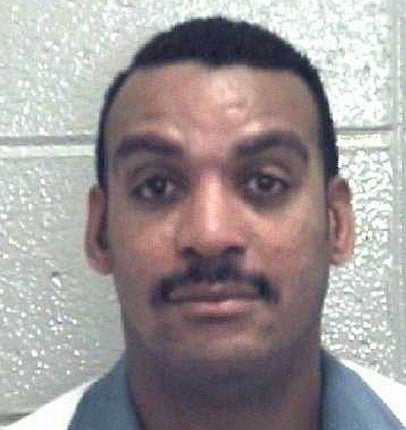Execution using UK drugs 'may have gone wrong'

An American prisoner in Georgia was executed with British drugs despite testimony from defence lawyers and a medical expert that one of the chemicals might have been ineffective and beyond its shelf life.
Emmanuel Hammond, 45, was put to death in the United States shortly before midnight on Tuesday, using a combination of three drugs. One of the drugs, sodium thiopental, was purchased from Dream Pharma, a small wholesale company based in Acton, west London. Sodium thiopental is an anaesthetic used to render a prisoner unconscious before a second drug, pancuronium bromide, causes paralysis. Finally, a fatal does of the poison potassium chloride is delivered.
The execution went ahead despite expert testimony questioning the efficacy of the sodium thiopental that was sold to the Georgia Department of Corrections (GDC) by Dream Pharma, which is run from the offices of Elgone Driving Academy by Mehdi "Matt" Alavi.
In a series of last-minute appeals, lawyers for Mr Hammond presented evidence from Dr Mark Heath, a clinical anaesthesiologist at Columbia University Medical Centre, who said evidence from a previous execution of a Georgia prisoner suggested Dream Pharma's sodium thiopental may not have worked properly.
Brandon Rhode was executed using Dream Pharma's sodium thiopental on 27 September 2010. During the execution, numerous reporters and witnesses noticed that his eyes remained open throughout the procedure, an event Dr Heath described as "highly atypical" as the drug normally ensures an executed inmate's eyes remain closed.
In a sworn affidavit seen by The Independent, Dr Heath said: "If the thiopental was inadequately effective Mr Rhode's death would certainly have been agonising. There is no dispute that the asphyxiation caused by pancuronium and the caustic burning sensation caused by potassium would be agonising in the absence of adequate anaesthesia."
It is not yet known whether Hammond, who spent 23 years on death row for murder, showed similar symptoms during his execution. His lawyers argued that the questions about the drug's effectiveness should have prevented the final sentence being carried out. "The origin and irregularities of these drugs raise serious questions as to whether they are adulterated, expired or counterfeit," Mr Hammond's lawyers wrote in their appeal to the State Supreme Court. "Without the requested relief, Mr Hammond will suffer irreparable harm in that he will be executed in an unconstitutional manner."
Hammond's execution was halted briefly for a few hours, until a county court and the State Supreme Court both ruled that the evidence was too speculative to warrant a stay. Georgia is now the third state known to have acquired sodium thiopental from Dream Pharma. Prison officials have struggled to source it from within the US after the domestic company that manufactured it stopped producing it last year.
When The Independent contacted Mr Alavi yesterday he declined to comment. Reprieve, a British group that campaigns against the death penalty, said the Government should have done more to make sure British drugs were not used in executions.
"It is shocking that Britain has allowed a fly-by-night company in the back of a driving academy to export these drugs," said Clive Stafford-Smith, Reprieve's director. "The British Government must initiate an immediate inquiry into how this can happen."
Join our commenting forum
Join thought-provoking conversations, follow other Independent readers and see their replies
Comments